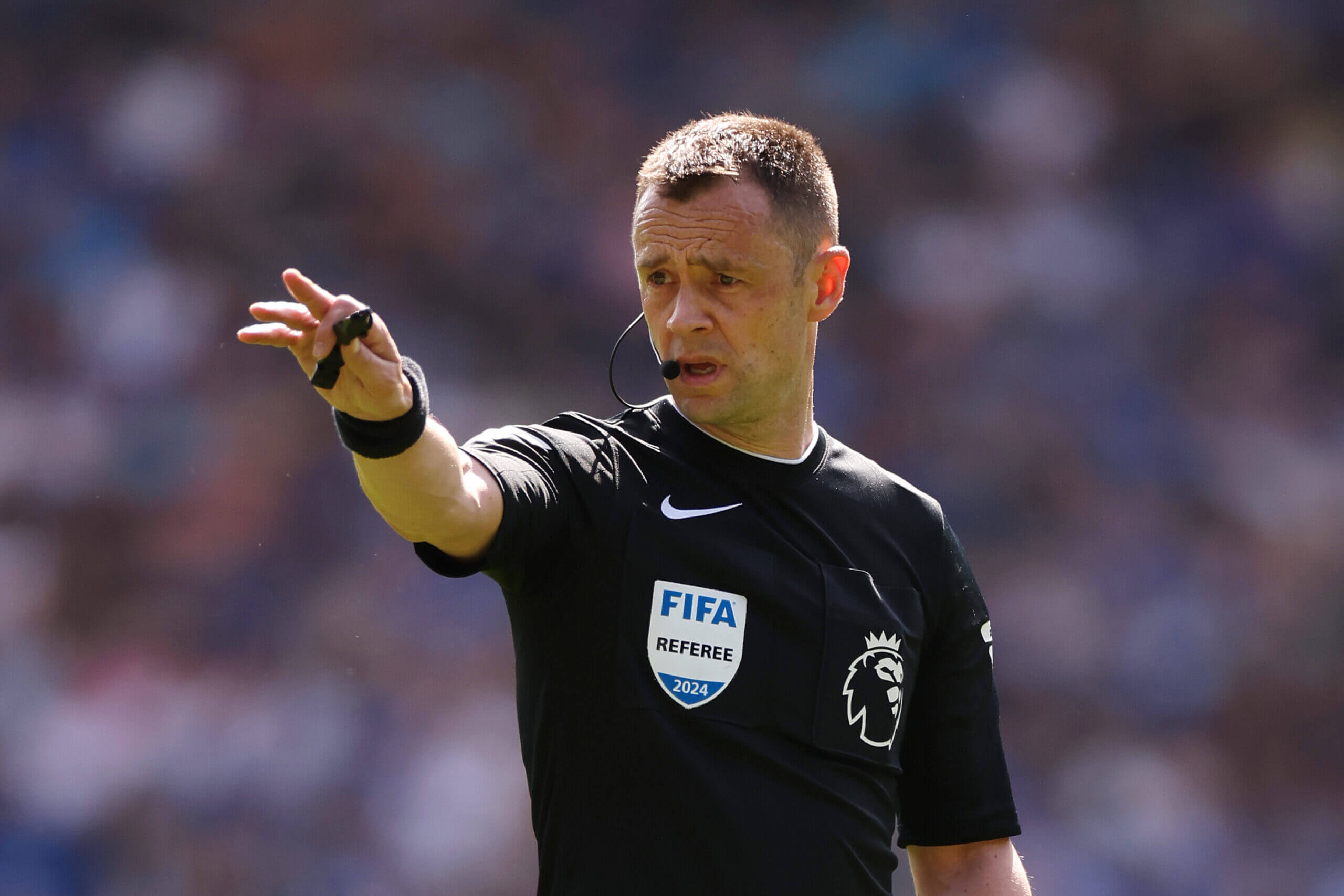The policy that helps inform which match officials are chosen to appoint games in the Premier League, English Football League and Women’s Super League has been published for the first time.
Professional Game Match Officials Limited (PGMOL) — the body in charge of refereeing in England — chief Howard Webb revealed that in an effort to be more transparent, his organisation wanted to make the appointments policy and its guidelines available to the public.
After earlier confusion due to Webb’s comments, PGMOL has since clarified the allegiances of individual officials within its organisation will not be made available to the public.
The move comes after public refereeing controversies in the Premier League particularly last season. Stuart Atwell, for example, was accused by Nottingham Forest of being a Luton Town fan following Forest’s controversial 2-0 defeat at Everton when the official was on video assistant refereeing duties.
GO DEEPER
Nottingham Forest, Stuart Attwell’s Luton link and a melodrama played out on social media
“Officials are asked to declare any specific interests in advance of the season and as the season goes on should any of those things change,” Webb explained. “That (the appointment policy) will be made public I believe and coming out as well so you can see what that looks like and what those declarations of interest are.
“We review each of those and then make a judgement if we feel that there’s a conflict of interests based on if you declare yourself as a supporter of a club, if you play for a club as well as we are trying to get more players into refereeing. So that’s a new area that we need to work with. And if you’ve got any personal connections to people that work for clubs as well.
“We’ll make an evaluation of all of those and then should we consider there is a conflict of interest then that will be recorded and will be taken into account on the appointments.”

Webb has been PGMOL chief since August 2022 (Dave Thompson/Getty Images)
What the policy says
Alongside the Premier League, EFL and WSL, the policy also helps determine who is eligible to officiate games in the Carabao Cup, EFL Trophy, FA Cup (both men’s and women’s), Women’s Championship and more.
It states officials must not take charge of a match where they have a conflict of interest. The policy goes on to say if an individual does have an active interest in seeing a certain club achieve success (for example having had a season ticket in the past) then they would be ineligible for selection.
The same goes for if an official has played for a club previously or has a ‘material personal connection’ with a club such as a business interest or a family member who works there.
After officials have submitted their declarations of interest then it will be at the discretion of PGMOL to decide what games they are able to officiate on.

GO DEEPER
What is PGMOL? How refereeing really works in the Premier League
On excessive stoppage time
Ahead of the new season, Webb was also asked about referees being told to allow 30 seconds after a goal is scored before adding time to stoppage time and whether it was an acceptance that stoppage time last term was too long.
“In terms of the 30 seconds,” Webb said. “Last year, we complied with the law change around calculating time for stoppages precisely and also being more robust in-game with those situations that delay restarts, infractions are clear, deliberate and impactful.
“We did see an increase in the effective playing time but it came at a bit of a price in terms of the actual amount of time. The amount of effective playing time took more than the actual time that was played, that was put on the board. We saw an awful lot of goals last year. We saw something like 3.4 goals per game compared to previously 2.7 or 2.8. So that was a big increase. Each goal takes on average about 66 seconds to celebrate in the Premier League.

GO DEEPER
Webb: Premier League exploring in-stadium explanations for VAR decisions
“So if you’ve got a game with six goals in the second half and each one takes over a minute, that’s automatically over seven minutes amount of added time. And the feedback we were getting from people in the game was that was maybe a little bit excessive. So we’ve looked at what we can do to find a good sweet spot if you like in that respect. Still reflecting the time that’s lost to make the game fair but also not being too excessive.
“We think that 30 seconds is a pretty normal amount of time that a team would need to go back and reset after a goal. Then you’ve got the celebrations which can can be quite extended after that. So we add that time beyond the 30 seconds, bring it back down to something a little bit less than where we were last year. We think that’s a reasonable sweet spot, particularly in a game like ours where we’re having so many goals scored and therefore we’re seeing pretty big numbers on the board.
“We’re thinking there’s probably a compromise to reach on that, still being pretty respectful to the principles around adding time on but also being pretty robust within the 90 minutes to deal with players who do like restarts in a clear, deliberate and impactful way.”

GO DEEPER
Premier League preview: Our writers predict what will happen in 2024-25
(Lewis Storey/Getty Images)

